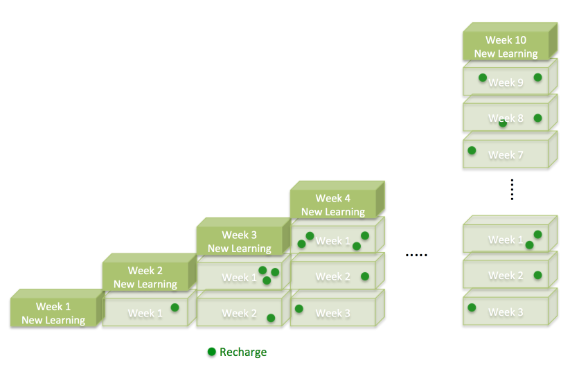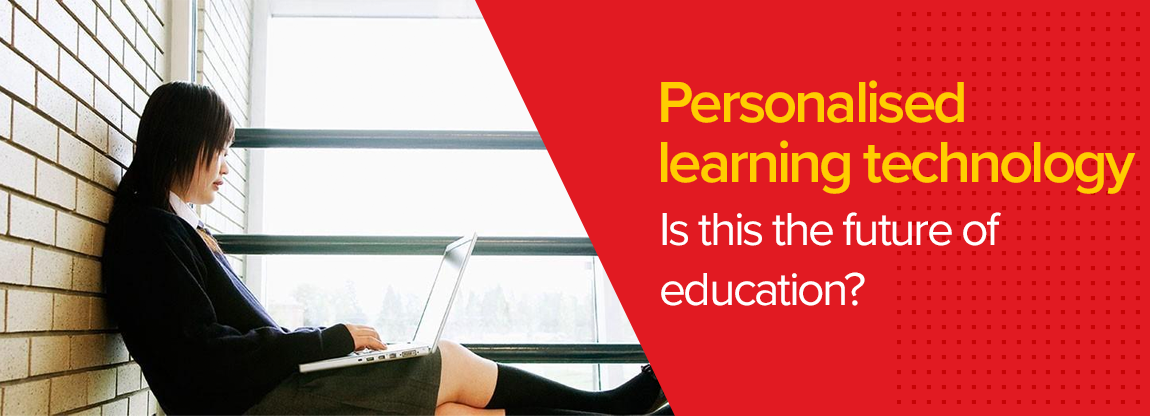Personalised learning technology & the future of teaching
Can personalised learning technology ever replace teachers? At McGraw Hill, we have a large team of data scientists and analysts working to understand the science of learning - and for us the answer is simple. Teachers are here to stay, but their role may evolve going forward.
One of the most important impacts of personalised and adaptive learning is through facilitating change. A change where the unique qualities of a teacher are crucial for the most complex aspects of the educational system: The social learning ecosystem and the creative struggle when students are learning something challenging.
Here’s a look at what personalised learning can do to help with this:
Study Efficiently
There is a ‘mountain of information’ that students are supposed to learn. Information that on its own is quite easy to understand. The challenge occurs when it piles up during a day, a week, or a semester. It becomes overwhelming and thus difficult to learn quickly and retain — without help. How students get through this overwhelming pile of information varies from student to student. Helping the student monitor what they have learned efficiently and identify areas of struggle is one of the key advantages of an adaptive system.
Our adaptive reading platform, SmartBook, and artificial intelligence learning system, ALEKS, have the advanced capabilities to deliver a truly personalised education journey. The level of complexity and sophistication that they offer in terms of recognising the student's interaction is unprecedented. The resources are designed specifically to help students learn the basics and build academic confidence. As a result, teachers tell us that students come to class better prepared to learn the more complex things — and teachers spend less time remediating the gaps in learning ‘the mountain of information’. That time recouped is a gift to both the student and teacher that can be spent on better things.
Balance workload over time - preventing cramming
From middle school and up, cramming plays a critical role in ineffective learning. We now have ‘recharge’ resources in our SmartBook platform that help students avoid this by allowing them to focus on what can help them in the long run. The concept behind this technology is simple, but it is extremely hard to execute: Recharge selectively — based on a learner’s individual needs — filters learning objectives from previous weeks of learning that should be ‘recharged’:
This is a significant challenge to execute, depending on the granularity of our adaptive engines and content. When you think about it, this is actually something that is impossible for a teacher to offer - to create a personalised plan daily for each student taking into account everything that has transpired in the past. But then think again: Which teacher would not like to see students come to class prepared to integrate it all at the end of the semester?


How can we adapt to our students' needs?
We have made a breakthrough in computer science that allows students to show how they get from A to B allowing them — fully and freely — to devise their next steps. This technology is critically important to analyse individual differences in how students learn to achieve the best possible outcomes.
This has a transformational impact on how students’ study when they don’t have access to a teacher — and how subsequent interactions with teachers occur. We develop pioneering products and technologies that address the full spectrum of subjects. Our technologies are already sophisticated enough to cover computational based learning adaptively, and more exciting developments are well underway.
What makes McGraw Hill a learning science company is that we spend 100% of our attention studying student-teacher learning and behavior. We are innovating educational technology based on a deep understanding of how people understand the critical role teachers play in this process. We are obsessed with the design of the next generation of educational technologies and the most advanced content in the world.
This article was originally published on the McGraw-Hill Education US blog.
Sign up to our newsletter

